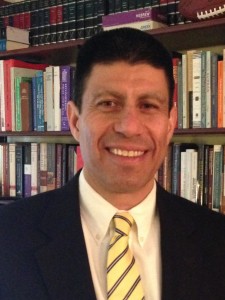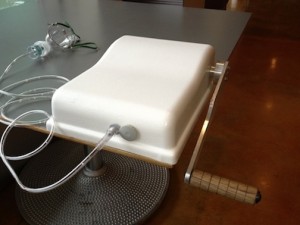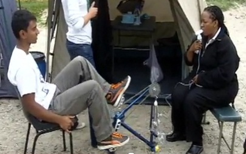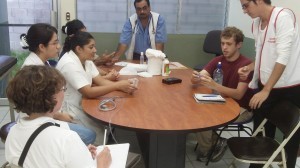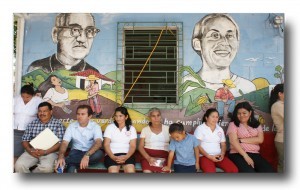Patricia P. Underwood is a recent graduate of IPS and has big plans for the future! Patricia completed her degree later in life than expected, but she isn’t letting that slow her down. In fact, she is more dedicated and passionate than ever to join forces with like minded people and make lasting, positive changes in the world.
Get to know more about her passion and spirit below and feel free to contact her to continue the conversation.
What were your studies focused on at IPS?
I started out in Pastoral Studies and switched to Contemporary Spirituality.
What was your favorite class and why?
Truthfully, I cannot say that I had a favorite class because all of my classes were very interesting. However, I will say that my World Religions class with Dr. Heidi Russell was very informative as it gave me a look at the five world religions which I had briefly studied at Ohio Dominican for my Bachelors degree in Theology. The difference was that in Dr. Russell’s class we had to visit and interview someone from the different religions. This is where I interviewed a man from Africa who practices the Islamic religion. That interview was very enlightening as he shed some light on a lot of misconceptions about the Muslim religion that the Media tends to exploit and in turn creates fear against a very peaceful religion.
What was your greatest accomplishment while at IPS?
Graduating! Seriously! After working for many years I decided at the age of 52 to return to school and finish my bachelors degree that I started in 1972. I began at Ohio Dominican University, where I got my Associate Degree in Theology, returned to ODU and went on to get my Bachelors degree in Theology, and then decided to go for the Masters of Arts at Loyola and now graduating at the age of 60. So I have been in school a total of eight years straight. Whew! So graduating with a pretty darn good grade point average has been a great accomplishment for me at this point in my life.
What was your greatest challenge at IPS and how did you overcome it?
I would say that my greatest challenge was not academic, but more of a spiritual challenge. Staying true to my personal spiritual beliefs and being open to learning new religions and spiritualities. Before returning to college I was very active in the Native American spiritual traditions which included a strong belief in God and the Bible.
My undergraduate school was Catholic and Loyola is Jesuit and these two denominations were different from my spirituality at the time of my return to education. However, I was very familiar with both the Catholic and Jesuit traditions. My parents raised us in an Episcopal church and I attended a Catholic church with one grandmother and the A.M.E. Church (African Methodist Episcopal) with the other grandmother, so I have always had a variety of religions in which to observe.
The challenge as I said before was to open heartily engage in listening and learning the Catholic and Jesuit traditions in more depth than attendance of a Sunday morning service.
What are you doing post graduation?
Currently, I have been accepted into the Neiswanger Institute for Bioethics. I will be pursuing another Masters of Arts in Bioethics and Health Policy. Also, I would like to teach online at LUC or any other college in the field of religion, theology, or humanities classes. I would also like to pursue some writing projects, which would include my masters thesis topic of Black American Female Spirituality. I quickly learned during the research for my paper that not a lot of books or articles exists on this topic for academic purposes.
My thesis paper addresses some of the issues that Black Americans, male and female, possess about fair treatment within many areas in America, and due to the mistreatment of their ancestors many Black Americans are despondent and afraid that they will not get quality healthcare or medical treatment.
The ugly history of the Institution of American Slavery, the Tuskegee Experiment and the present day welfare system are some of the instances that has left some deeply rooted scaring on many Blacks in America that needs to be remedied and soothed. This is why I want to pursue the Bioethics degree to help change the myths and unlearned thinking of many Blacks and help them to better trust medical doctors and hospitals to give the fair treatment and medical care that they deserve.
How has your education from IPS prepared you for your new role/projects?
Wow! The IPS department at LUC has prepared me to be more confident in my conversations about God, the Church, and religion. All of my classes, the ones in my direct curriculum and including the ones out of my direct curriculum such as human development, psychology, and community development, were so essential to understanding the role of a pastor as well as a lay person and the purpose of the Church.
The IPS department has some great professors who encourage out of the box thinking and teaching that allows students to get the pertinent information, process that information and use the information as needed in a mannor that can be used on a daily basis to help individuals understand the ever changing world we live in today and how to stay rooted in the words of God and HIS covenant with humankind that never goes out of style.
What are your future goals and how do you see yourself going to “set the world on fire?”
My first thought to this question is the world is already on fire enough. What we need to do now is put out a few of these fires that are beginning to burn out of control. There are literally fires burning peoples homes and causing mental and emotional strife, and there are racial and gender fires burning that need to be extinguished. There is hunger and disease in the United States and world wide that needs to be addressed. The food supply in the United States is under attack as well and it is attacking our bodies, our health, and the health of our children. So you see we as Christians and as followers of Jesus Christ need to focus on helping to put out some of these fires.
I will be on fire searching for people who feel as I do, who are looking for more positive media coverage of those people who are already working to solve these burning issues. We are constantly being bombarded with the negative in the world but there are many of us who are working hourly and daily to help in all of these situations and I hope to become more active as well.
Any additional information:
I would like to add to my fellow older sisters and brothers who are considering and perhaps already working on furthering their education that the IPS department at LUC is a great place to get your graduate education.
The online degree is a great way to get your education, especially if you are working and have young children to take care of or if you are older, or if you have a medical condition or may be you are taking care of your elderly parents, or if you just don’t feel like doing the brick and mortar class room scene. You can relax at home and go to class in your pajamas if you feel like it. The classes are great! You still interact in live class discussions and even get to know your classmates to make lasting friendships and your professors are always available to meet with you and advise you and help you achieve you educational goals.
If you wish to connect to Patricia Underwood, you can email her at punderwood@luc.edu.
Join the conversation by following @BrianSchmisek on Twitter and @LoyolaIPS on Instagram! Also, network with the Loyola Chicago IPS community on LinkedIn.

